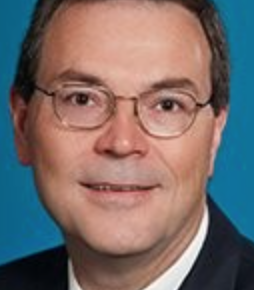OPINION: Health care systems must take the lead on health inequity now At OSF HealthCare, justice is one of our core values. We recognize and respect the personal worth and dignity of every person we serve regardless of race, color, religion and ability to pay.
 At the same time, we realize that we need intense focus on our underserved communities. Health inequity is real, and there are preventable differences in medical care and health outcomes.
At the same time, we realize that we need intense focus on our underserved communities. Health inequity is real, and there are preventable differences in medical care and health outcomes.
Get The Latest News!
Don't miss our top stories and need-to-know news everyday in your inbox.
Many of our patients face a combination of challenges: lack of access to treatment, transportation, healthy foods and education on healthy behaviors. At first, the basics such as transportation and education may not seem like health care, but in reality, they are essential to better health outcomes.
Social and economic barriers contribute significantly to health disparities. We are developing innovative care delivery models and community resources, but disparities continue. At OSF, we strive to serve every patient with the greatest care and love. We seek to provide care and support with our communities, not to our communities. We recognize that as a first step, we are called to examine the ways in which we have fallen short. We want to understand ourselves and to learn how to serve more effectively.
 We are taking steps: from requiring bias training for all OSF leaders to using clearer language in communicating with patients to carefully selecting vendors and business partners. We have empowered a Health Equity Action Council, made up of OSF leaders, to analyze the issues as we continue to pursue diversity, equity and inclusion. They are already partnering with community leaders in Peoria, where OSF is headquartered, including the mayor, the National Association for the Advancement of Colored People (NAACP) president and other key stakeholders. Through analysis and experience, we have discovered that the risk of heart failure and hospital readmissions on the part of African-American patients is higher—a sign that we need to make changes in the treatment and services that we provide them.
We are taking steps: from requiring bias training for all OSF leaders to using clearer language in communicating with patients to carefully selecting vendors and business partners. We have empowered a Health Equity Action Council, made up of OSF leaders, to analyze the issues as we continue to pursue diversity, equity and inclusion. They are already partnering with community leaders in Peoria, where OSF is headquartered, including the mayor, the National Association for the Advancement of Colored People (NAACP) president and other key stakeholders. Through analysis and experience, we have discovered that the risk of heart failure and hospital readmissions on the part of African-American patients is higher—a sign that we need to make changes in the treatment and services that we provide them.
This is just one example of the health inequity in the communities we serve. OSF is committed to addressing the range of disparities and underlying causes. We are open to collaborating with any community partner willing to face the challenges of creating a healthier and more just society.
Opinions expressed in this section are solely those of the individual authors and do not represent the views of RiverBender.com or its affiliates. We provide a platform for community voices, but the responsibility for opinions rests with their authors.
More like this:
